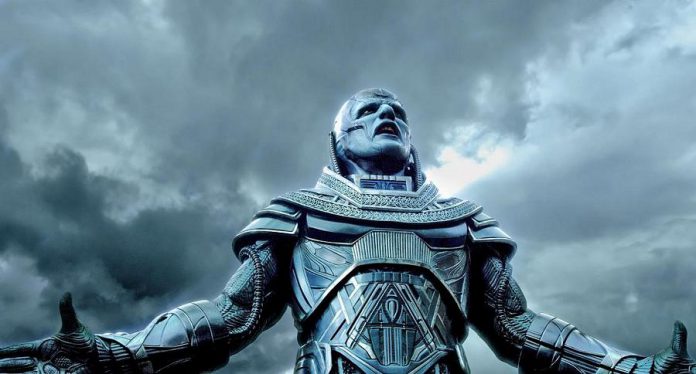
We fear what we do not understand. This simple yet elegiac adage has been the rhetoric of the X-Men since issue #1 was printed on September 10th, 1963, a time that is still greatly associated with rebellion and social-political upheaval.
This clearly shaped the inception of the company’s premiere superhero team. The stories and characters reflected and depicted the true social justice issues the real world endured and progressed through — rather than acting as mere rah-rah American talismans to distract and inspire children in life during wartime.
Here, the disenfranchised mutants (rapidly evolved humans with a range of awesome powers) were not only pronounced but empowered in the often-sprawling narratives. Never was this more prevalent than the run of X-Men comics published throughout the 1980s. The stories, though still popular, attained a striking balance between colourful entertainment and astringent commentary.
Director Bryan Singer’s latest installment and third in the current trilogy in the franchise, X-Men: Apocalypse, draws deeply and smartly from these attributes and is a bold, beautiful success.
But this is much more than a mere ’80s pastiche. Building upon the preceding excellence of X-Men: Days of Future Past, Apocalypse pushes the full-on Reagan-era hell where a threat so powerful that it borders on intangible has been awakened. Mutantkind’s biggest threat had long been Man, but now the evil that can undo them all comes from within their own community.
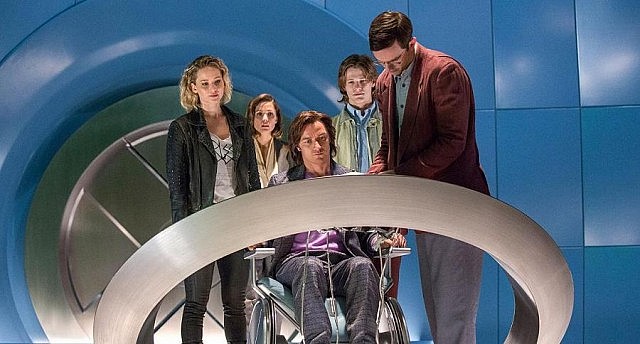
One of the X-universe’s great strengths is imbuing both historical and alien settings with celestial technology, making it seem utterly real. The initial sequence shows a lavish ceremony where En Sabah Nur is preparing for such a transfer, but is interrupted by a disastrous assassination attempt that leaves him placed in a new body but buried beneath the ruins of his empire. Finally: a superhero film with a antagonist that is actually frightening.
The ingenious credits whirl us through a literal tunnel of time covering many major events leading to the 1980s. We catch up with shape-shifting Mystique (Jennifer Lawrence, reliably solid), who now traffics young mutants from Thunderdome-style dogfights to sanctuary in America, while Magneto (Michael Fassbender) now lives under a alias as a steel worker (get the joke?) in Poland. Both are in exile due to the scandalous events in Washington from the previous film.
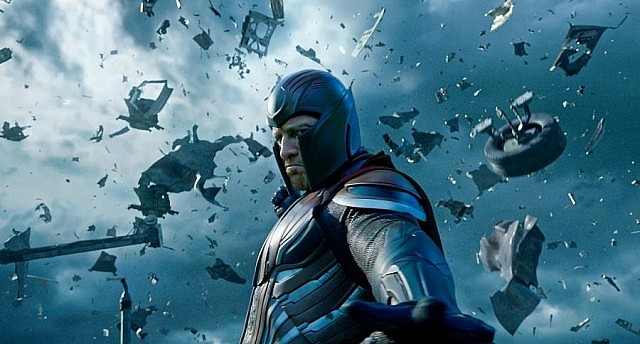
The period costume design of these films continues to be very on point. Lawrence incognito as a East Berlin punk and Fassbender as a chiseled everyman ensure that everyone in the audience has something nice to look at.
Breathlessly whisking from one exotic locale to the next, we find ourselves in modern-day Cairo where archaeologists have dug a little too deep and inevitably awaken the slumbering En Sabah Nur (an unrecognizable Oscar Isaac) who marvels at the modern world yet despairs at the dominancy of the inferior humans.
He spots a young thief subtly using mutant abilities being pursued into a alley. It takes about 30 seconds before En Sabah Nur is eviscerating her would-be attackers with sand and melting them into walls. The thief, Ororo Munroe (Alexandra Shipp, good but not given much to do), is the first recruit to his Four Horseman henchman and she later becomes known as the weather-controlling Storm. En Sabah Nur wishes to rid the world of its false idols and return to a time before man lost his way — to which Storm brilliantly quips “Welcome to the ’80s.”
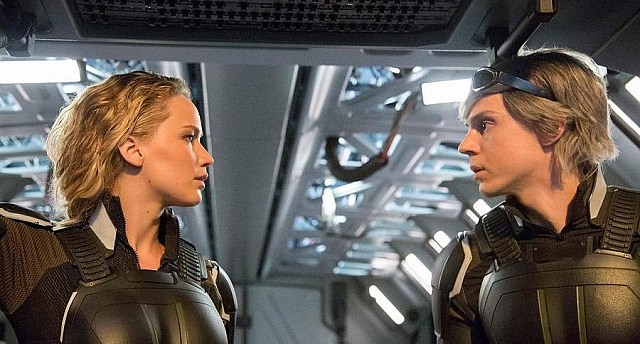
Simon Kinberg’s screenplay is packed with many memorable lines, though this terrific script will not spare you if you haven’t been following the films thus far.
The once-ragtag proving ground of Professor Charles Xavier (James McAvoy) is now a prosperous school for the gifted where young mutants learn to harness their varying abilities. Xavier is sought out by childhood friend Mystique to locate Magneto by means of Cerebro, a vast database program that lets Xavier’s incredible psychic powers tap into any mind on the planet. A workplace accident reveals the true nature of Magneto’s identity, which results in the police seeking him out with tragic results for him and his new family.
En Sabah Nur seeks out to harness Magneto’s unique control over metal to add to his roster of henchman, which now includes the winged Archangel (Ben Hardy) and fan-favourite telekinetic ninja Psylocke (Olivia Munn, good, though also not given much to do). The loss of Magneto’s family — both new and his parents’ deaths in Auchwitz — feels like you’ve stumbled across some German art house hit being broadcast late night on TVO and betrays Singer’s more intimate early filmography. It doesn’t hurt that both sequences are showcases for Fassbender’s signature raw emotion. The man’s grief practically has a stench.
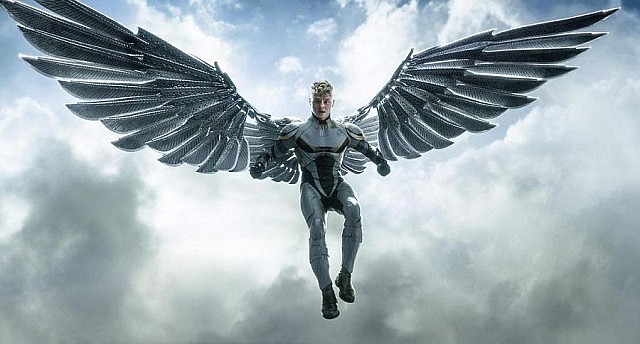
But, crucially, it’s not all gloom and doom. Evan Peters returns as Quicksilver and saves the entire student body from the exploding X-Mansion in a jaw-dropping sequence set to the enduring synth throb of Annie Lennox crooning “Sweet Dreams (Are Made of These)”. It’s a welcome bit of well-timed levity and a great example of why these films work: they know their timing.
Neither the slapstick bro-down of The Avengers nor the falsely stoic battle of the cornbread orphans that was Batman v Superman, X-Men: Age of Apocalypse is, like the comics, remarkably balanced. The humour truly complements the surprisingly nasty violence even if it lacks Deadpool‘s R-rated potty mouth.
As we draw nearer to the mother-of-all-showdowns in Cairo, En Sabah Nur builds a new temple for himself to transfer into a new host, while Magneto uses his now-enhanced control over structures to fashion a enormous writhing spirograph consisting of the ruins of western civilization. Yes, it’s impressive.
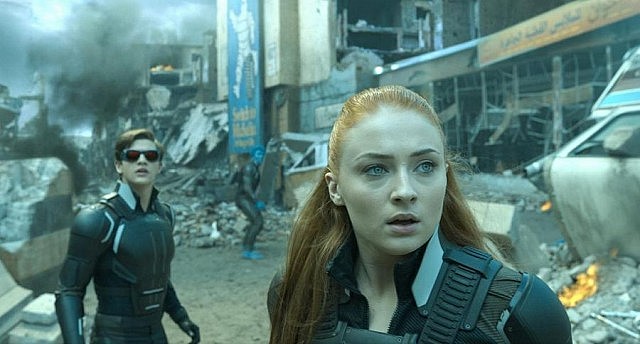
Her mental wrath unleashed, Grey elevates an already impressive film into a truly exhilarating one, making the eight-year-old inside of me cry tears of joy in the theatre and eradicate memories of X-Men: The Last Stand like the pile of dead wood that it was. Turner has a great line as her and her peers emerge from a screening of Return of the Jedi: “At least we can all agree that the third one is always the worst.” Not in this case: this is the one we’ve all been waiting for.
If science fiction typically evokes the climate of when and where it was written, then X-Men: Apocalypse represents the world that I want to live in. A world where the disenfranchised affect actual change instead of sharing articles on Facebook as a form of activism. Fight the real enemy: that is the central and vital theme of this entire saga.
It is easy to be seduced by the wrong cause and the systems of the weak. The nature of choice and who and what we align ourselves with is now more than ever a essential battle. X marks the spot.
X-Men: Apocalypse Trailer
All photos by Alan Markfield, Twentieth Century Fox Film Corporation


























